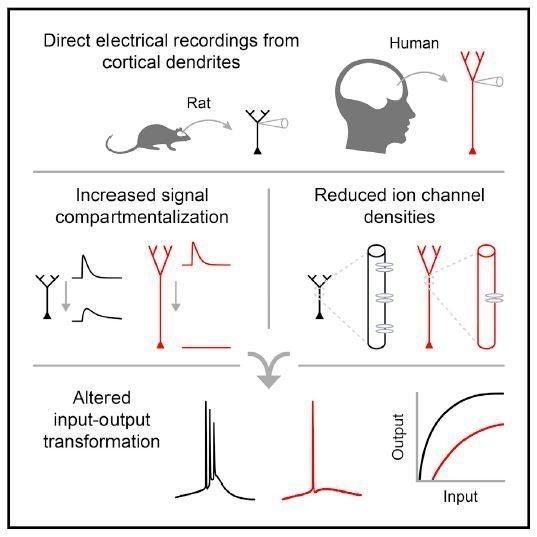Human neurons are much larger than those of model organisms mice and rats, so it’s been unclear whether it’s size that makes a difference in our brain’s computational power. Now, in a study appearing October 18 in the journal Cell, researchers show that unlike those of other animals, human neurons employ highly compartmentalized signaling. Human dendrites—the tree-like branching structures that function as neurons’ antennas—process electrical signals differently than dendrites in rodents, the most common model systems for studying neuronal properties.
“The human neuron is basically like a rat neuron, but because it’s so much longer, signals have much farther to travel. The human dendrites thus have a different input-output function” from rats, says senior author Mark Harnett, the Fred and Carole Middleton Career Development Assistant Professor in the Department of Brain and Cognitive Sciences at the Massachusetts Institute of Technology. “Dendrites farther away from the cell body have fewer ion channels, which control signal processing. That was something we absolutely did not expect.”
Harnett, who studies how the biophysical features of neurons shape information processing in the brain, believes our longer, bigger dendritic arbors endow human neurons and their respective circuits with enhanced computational abilities.
